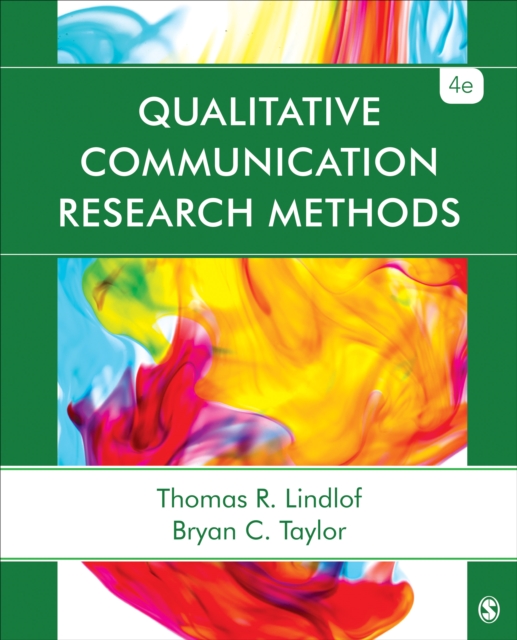
Qualitative Communication Research Methods Paperback / softback
by Thomas R. Lindlof, Bryan C. Taylor
Paperback / softback
Description
"This is the best qualitative methods book I’ve seen, especially among books aimed at undergraduate audiences." —Michael Irvin Arrington, Indiana State University Qualitative Communication Research Methods, Fourth Edition introduces readers to qualitative research in speech and mass communication.
Award-winning scholars and authors Thomas R. Lindlof and Bryan C. Taylor guide readers through every step of the qualitative process, from developing research topics and questions through writing a final report.
Readers are given numerous examples of work in the field to illustrate how studies are designed, carried out, written, evaluated, and related to theory.
In addition to covering the theories and methods currently used in qualitative communication research, the authors also discuss important trends influencing the future of that research, helping readers make informed judgments about the significance and consequences of recent trends. New to the Fourth Edition: A new chapter titled "The Diversity of Qualitative Research in Communication Subfields" provides readers with a complete guide to the field’s distinctive subfields and enables readers to identify the research agenda that best represents their own interests.
Two rising subfields – Political Communication and Communication Activism – were added, resulting in thirteen subfields covered. Two major phases of data analysis have been split into separate chapters, enabling readers to concentrate on the initial steps of analysis before moving on to the interpretation phase of analysis.
Discussions of important intellectual and institutional trends currently reshaping the landscape of qualitative research, including Materialist Theory, Big Data, and Open-Access publishing, provide readers with cutting-edge knowledge and skills that affect what they study and how they study it. An analysis of new developments in media and technology shows readers how social media networks and other digital platforms are not only topics of research, but also the means for collecting and analyzing data.
Information
-
Less than 10 available - usually despatched within 24 hours
- Format:Paperback / softback
- Pages:520 pages
- Publisher:SAGE Publications Inc
- Publication Date:06/02/2018
- Category:
- ISBN:9781452256825
Other Formats
- Hardback from £125.00
- Paperback from £76.89
Information
-
Less than 10 available - usually despatched within 24 hours
- Format:Paperback / softback
- Pages:520 pages
- Publisher:SAGE Publications Inc
- Publication Date:06/02/2018
- Category:
- ISBN:9781452256825






